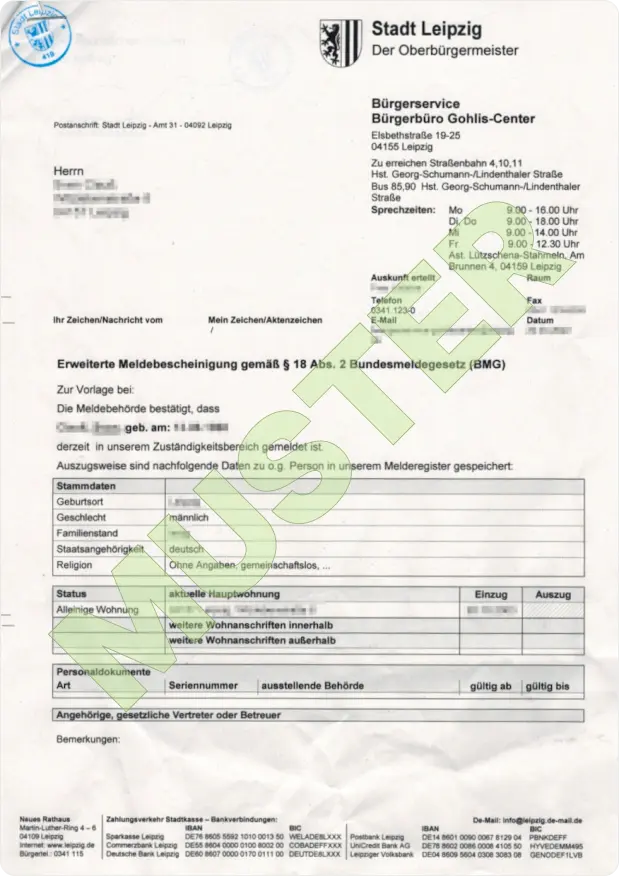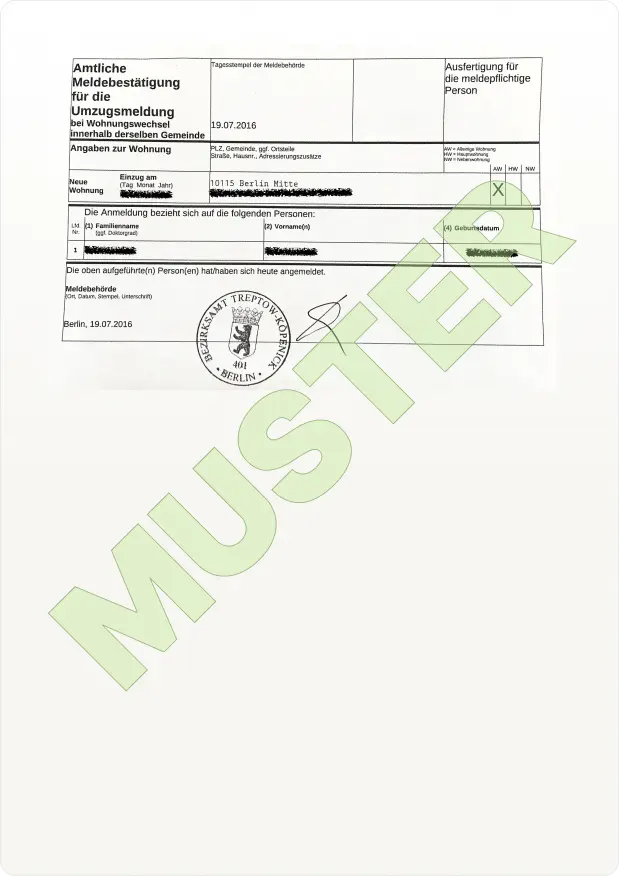Meldebescheinigung
Inhaltsverzeichnis
Was ist eine Meldebescheinigung?
Eine Meldebescheinigung ist ein behördliches Dokument, das die aktuelle Anmeldung oder Meldung eines Einwohners an seinem Wohnort bestätigt. In Deutschland ist die Anmeldung beim Einwohnermeldeamt gesetzlich vorgeschrieben, und die Meldebescheinigung dient als Nachweis dieser Anmeldung.
Hier sind einige wichtige Informationen über die Meldebescheinigung:
- Inhalt der Meldebescheinigung: Die Meldebescheinigung enthält grundlegende Informationen über die angemeldete Person, wie Name, Geburtsdatum, aktuelle Adresse und den Zeitpunkt der Meldung.
- Verwendungszwecke: Die Meldebescheinigung wird oft für verschiedene behördliche Angelegenheiten benötigt. Zum Beispiel wird sie häufig bei der Beantragung von Ausweisen, Reisepässen, Führerscheinen oder bei anderen behördlichen Anliegen verlangt.
- Umzug und Anmeldung: Bei einem Umzug innerhalb Deutschlands ist man verpflichtet, sich innerhalb einer bestimmten Frist bei der örtlichen Meldebehörde anzumelden. Die Meldebescheinigung dient als Nachweis für diese Anmeldung.
- Bestätigung des aktuellen Wohnsitzes: Die Meldebescheinigung bestätigt den aktuellen Wohnsitz und ist daher wichtig, um beispielsweise einen neuen Arbeitsvertrag abzuschließen, ein Bankkonto zu eröffnen oder staatliche Leistungen zu beantragen.
- Beantragung: Die Meldebescheinigung kann persönlich beim örtlichen Einwohnermeldeamt beantragt werden. In der Regel sind dafür ein formloser Antrag und die Vorlage eines gültigen Ausweisdokuments erforderlich.


Wann ist eine Person nicht meldepflichtig?
Der Begriff "nicht meldepflichtige Personen" bezieht sich im Allgemeinen auf Personen, die nicht verpflichtet sind, sich bei den örtlichen Meldebehörden anzumelden. In Deutschland ist die Meldepflicht im Meldegesetz (MeldeG) geregelt. Nach diesem Gesetz sind Personen verpflichtet, sich innerhalb einer bestimmten Frist bei der örtlichen Meldebehörde anzumelden, wenn sie eine Wohnung beziehen oder umziehen.
"Nicht meldepflichtige Personen" umfasst in der Regel:
- Kurzaufenthalte: Personen, die sich nur vorübergehend in einer Unterkunft aufhalten und keinen festen Wohnsitz begründen, sind oft von der Meldepflicht ausgenommen. Dies gilt beispielsweise für Touristen oder Geschäftsreisende, die nur für eine kurze Zeit in einer Unterkunft übernachten.
- Bestimmte Gruppen von Personen: In einigen Fällen können bestimmte Gruppen von Personen, wie Diplomaten oder Angehörige der Bundeswehr, von der Meldepflicht befreit sein oder besondere Regelungen gelten.

